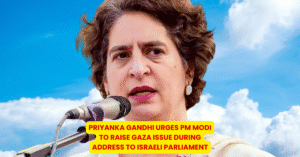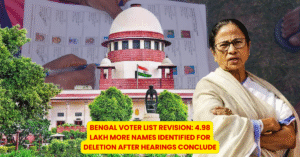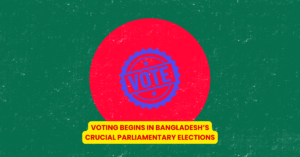Chhindwara / Bhopal, Madhya Pradesh — A devastating health crisis has shaken Madhya Pradesh after 14 children died in Chhindwara district under suspicious circumstances. Authorities contend the fatalities may be linked to a “toxic” cough syrup, prompting a strong official response: a Special Investigation Team (SIT) has been formed, a local doctor arrested, and the syrup manufacturer formally booked.
What’s Happened So Far
The children, many under the age of five, reportedly began showing signs of kidney failure. Local officials and health experts suspect that a widely used cough syrup — Coldrif, manufactured by Sresan Pharmaceuticals in Tamil Nadu — contained diethylene glycol, a highly toxic industrial solvent. Some lab reports show contamination levels far beyond what is legally permitted.
As the alarm spread, the state government acted swiftly:
- The doctor implicated in prescribing the syrup, Dr. Praveen Soni, has been taken into custody and suspended from service for alleged medical negligence.
- The manufacturer has been booked under charges including drug adulteration and culpable homicide not amounting to murder.
- Stocks of the syrup have been seized across multiple states, and its sale has been banned in Madhya Pradesh.
- The body of a two-year-old victim was exhumed for post-mortem as part of evidence-gathering.
- The SIT, composed of forensic, medical, and legal experts, will visit manufacturing sites, collect samples, and examine records across states.
A Wave of Worry and Outrage
Parents of the deceased children are demanding swift justice. Protests have surfaced in Chhindwara and beyond, with critics accusing authorities of delayed action and weak regulation. Some medical peers have threatened to strike if Dr. Soni is not released, citing pressure and protest from the medical community.
The state government has announced an ex gratia of ₹4 lakh for each bereaved family. Meanwhile, children still battling illness have been transferred to hospitals in Nagpur, including AIIMS, as several are reported in critical condition.
Broader Implications
This tragedy is more than a regional incident. It casts a harsh spotlight on drug regulation, pharmaceutical accountability, and safety standards for pediatric medications across India. Many are calling for stricter drug audits, transparent oversight, and better mechanisms to detect contamination before casual users are harmed.
As the SIT begins its probe, questions loom large: Was this a case of deliberate contamination, negligent oversight, or criminal malpractice? For grieving families, the inquiry can’t move fast enough — they seek answers, justice, and safeguards so no other child dies in vain.






